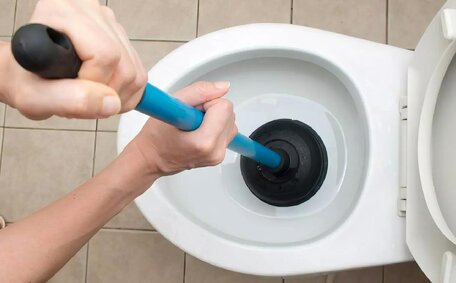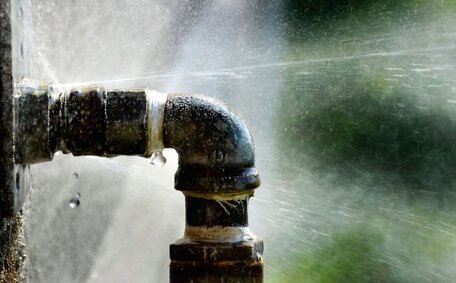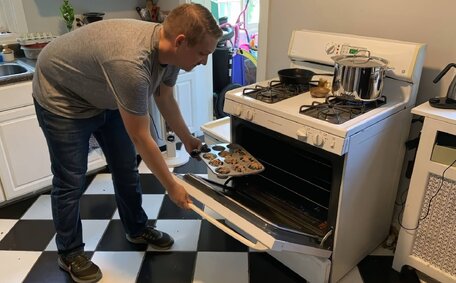Introduction to Blocked Drains and Health Risks
Blocked drains are more than just a nuisance - they can pose serious health hazards if left untreated. When drainage pipes become clogged with grease, detergent residue, hair and other debris, it provides the perfect breeding ground for harmful bacteria, mould, and other microorganisms. As they multiply, these dangerous pathogens can wreak havoc.
Foul odours emanating from blocked drains are a clear sign that conditions are ripe for spreading illness. The stench results from built up sewer gases containing toxic hydrogen sulphide and methane.
Exposure can cause headache, nausea and dizziness in the short-term. Extended inhalation may lead to more chronic neurological and respiratory issues.
Clogged pipes also increase the risk of sewage backups. Sewage entering the home introduces viruses, intestinal parasites and other pathogens that can lead to gastrointestinal disorders or worse. Stagnant water provides an ideal habitat for pests like flies and cockroaches known to transmit disease.
By addressing blocked drains promptly, these risks can be averted. Nonetheless, the importance of proper drainage for health should not be underestimated. With a comprehensive plumbing check and routine maintenance, your family can rest easy knowing your home’s plumbing operates safely and efficiently.
Causes of Blocked Drains
Blocked drains often originate from within the home. As grease cools it congeals and sticks to pipe walls.
Improper disposal of fats, oils and grease down the kitchen sink is a prime culprit. Food scraps, hair and other detritus get trapped, creating a thick blockage.
Flushing unsuitable items like diapers, sanitary products and wet wipes also frequently clogs drains. These materials do not break down and snag on joints or catchments. Toilet paper is designed to dissolve but excessive use can overwhelm pipes.
Tree roots infiltrating exterior drainage lines is another common cause of blocked drains. Roots grow towards moisture and can force their way into cracks or faulty joints. As roots expand, they impede water flow and provide further cracks to infiltrate.
Heavy debris entering the main sewer line leading outside can also result in a blocked drain. Sediment and minerals build up over time and restrict flow. Collapsed or displaced pipes due to ground shifts may also result in debris jams.
By modifying habits and inspecting drainage systems regularly, many causes of blocked drains can be prevented or addressed promptly. However, professional drain cleaning services are sometimes required, especially for large exterior blockages from tree roots or main sewer lines.
Health Risks of Blocked Drains
Blocked drains pose serious health risks that should not be ignored. Foul odours emanating from clogged pipes are more than just unpleasant – they can make your family ill.
Gases like hydrogen sulphide, ammonia and methane accumulate in stagnant water. Long-term exposure to these toxic fumes can cause nausea, headaches, breathing issues and neurological damage. Methane is also highly flammable, creating fire and explosion risks.
Bacteria and mould thrive in the damp, oxygen-deprived environment of blocked drains.
Salmonella, E. coli, giardia and other harmful pathogens can breed rapidly. Contact with contaminated water leads to gastrointestinal infections. Weakened immune systems are especially vulnerable.
Flies, mosquitoes, cockroaches and other pests are attracted to the smell of clogged drains. These insects can transmit diseases like dysentery, cholera and polio by contaminating food and surfaces.
Blocked drains also increase the risk of raw sewage backing up into your home. Exposure to untreated human waste introduces hepatitis A, typhoid, dysentery and other serious illnesses.
By investing in professional drain cleaning and maintenance, these health hazards can be prevented. Safeguard your family’s wellbeing by keeping your plumbing free of obstructions.
Preventing Blocked Drains
Blocked drains are inconvenient at best and hazardous at worst, but many clogs can be avoided with a little planning and precaution.
Use sink strainers and drain covers in kitchen, bathroom and laundry sinks. These devices catch hair, food scraps and other debris before it enters pipes. Strainers should be cleaned regularly to remain effective.
Avoid pouring cooking oils or fats down the drain. Allow them to cool and solidify, then dispose of in the trash. Eggshells, coffee grounds, and fibrous produce like artichokes should also go in the compost or garbage rather than the drain.
Only flush toilet paper - never wipes or feminine hygiene products even if they claim to be flushable. The fibres do not break down and accumulate to form clogs.
Inspect plumbing for leaks, cracks or other damage that allows debris to enter. Tree roots can infiltrate through even tiny openings so keep an eye out for root intrusion.
Have a professional plumber perform periodic drain cleaning maintenance, especially on exterior lines. They can thoroughly remove built up grease, minerals and other deposits before major blockages occur.
Consider installing water-efficient fixtures like low-flow showerheads and faucets. The reduced water volume helps prevent mineral deposits and accumulation.
Take care to minimise debris entering street drainage grates during yard work or gutter cleaning. Sediment entering the main sewer line can settle and restrict flow.
Though not always preventable, many common clogging culprits can be minimised with simple habits and diligent drain care. Take proactive steps to keep your plumbing free of obstructions.
Unclogging Blocked Drains
Dealing with a blocked drain can be frustrating, but there are several methods you can try before calling a professional plumber.
Natural drain cleaners like baking soda, vinegar or salt can help clear minor clogs. Mix 1/2 cup baking soda with 1/2 cup vinegar and pour down the blocked drain, waiting 30 minutes before rinsing with hot water. For tougher clogs, boil a pot of water and slowly pour down the drain.
Use a plunger over the drain to forcefully dislodge clogs. Place the plunger firmly over the drain, sink several inches into the water and plunge vigorously 15-20 times. Repeat if needed.
Try snaking the drain to physically break up and hook debris. Feed a flexible drain snake into the pipe and twist/push through the clog. Remove any material hooked on the snake when pulling it out.
For deeper clogs, use a powered auger which rotates to grind through blockages. Exercise caution not to scratch pipes when inserting the auger.
In cases of complete drainage failure, severe backups or signs of pipe damage, call a professional plumber. They have specialised equipment to clear blocked main lines, septic tanks and stubborn clogs beyond DIY methods.
Allowing extensive sewer backups or pipe damage to persist can lead to water damage, mould and foundation issues. At the first sign of flooding,structural concerns or overflows, contact a licenced plumber to properly inspect and repair your plumbing.
Conclusion
In summary, blocked drains pose a serious risk to health and home. Raw sewage backups introduce gastrointestinal illnesses.
Clogged pipes provide the perfect breeding ground for disease-causing bacteria, mould and pests. Toxic sewer gases like methane and hydrogen sulphide accumulate, resulting in potential nausea, headaches and respiratory issues.
Prevention is key.
Install sink strainers, avoid grease and food waste down drains, and only flush toilet paper. Install sink strainers, avoid grease and food waste down drains, and only flush toilet paper. For minor clogs, try baking soda/vinegar or a plunger before calling a plumber.
Severe obstructions may require mechanical drain snakes or augers. Allow licenced plumbers to handle significant backups or pipe damage to prevent flooding and structural issues. By remaining vigilant, you can keep your family safe and maintain proper drainage and plumbing health.






